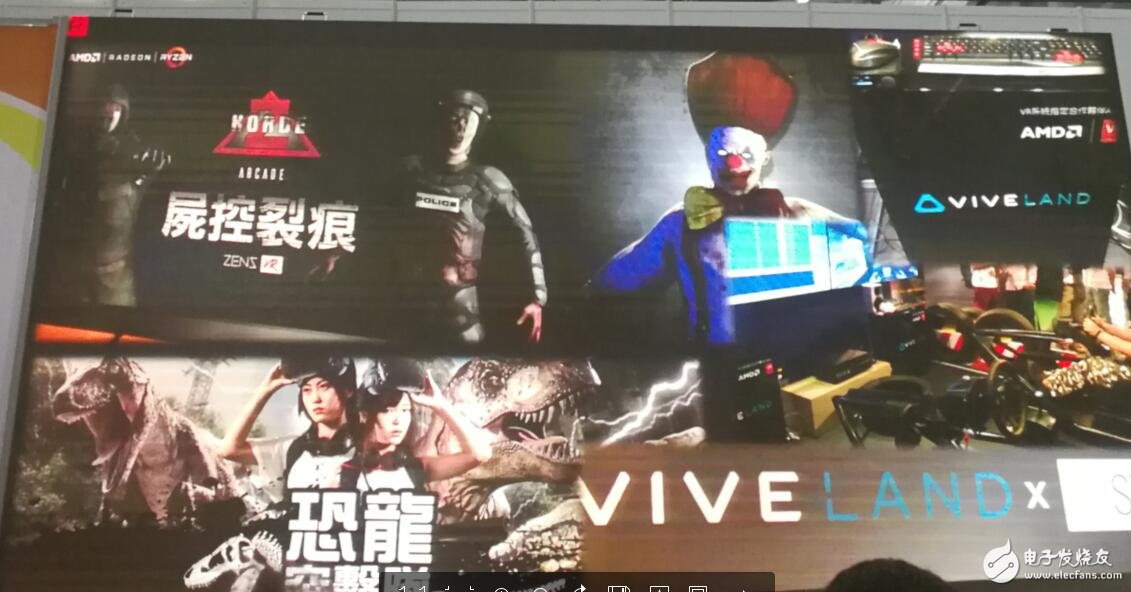2017 is the best period for the adjustment of the VR industry and the advantage of the fittest. Throughout the world, the VR industry has shown a booming trend, with consumer growth in the US, Japan and China markets.
In the first quarter of 2017, sales of the US market accounted for 40% of all virtual reality devices sold worldwide. The second largest is Japan, with virtual reality device sales accounting for 14%, reaching 81,000 units, but 90% of them are Sony's PlayStaTIon VR. China is currently the third largest market for virtual reality devices.

Analysts at well-known market research firm Canalys said that games and entertainment are still the main drivers of virtual reality technology, and devices like Sony PlayStaTIon VR want to continue to maintain a hot state, so there must be more AAA games. Support is OK.
According to McKinsey's latest VR market report, in 2016, regardless of the total number of VR users in China, VR equipment sales, or the content of VR games, it has increased 10 times compared with 2015.
According to the survey results of international professional research institute Canalys, in the market composed of PC VR and VR all-in-one, in 2016, the top three manufacturers in China's VR market are HTC, Dapeng VR and 3Glasses, and HTC Vive is the most in China market. The popular product, with sales of about 15,000, accounts for a quarter of the global Vive sales. Big VR has a market share of 16.9%. The application and market performance of domestic manufacturers have been noticed and recognized by overseas investors.

On June 15th, HTC held a shareholders' meeting in Taiwan. At the meeting, Chairman Wang Xuehong said that in 2016, HTC also entered the virtual reality (VR) industry for the first time and launched the VR helmet HTC Vive product. The above innovations lead to global technology development. . In the VR business unit, she said that VR is a terminal interface that can combine humanities, technology, and dreams to release human innovation and imagination. At present, HTC is not only investing in hardware development in the VR field, but also launching content platform Viveport and self-developed. The content of Vive Studios, another HTC also launched the Vive X accelerator program, thereby expanding the development of the VR ecosystem, and has established positions in Taipei, Beijing, Israel, San Francisco and other places.
She pointed out that the relevant research institutions statistics, in addition to HTC Vive in addition to the specification lead, in terms of VR helmet sales, HTC Vive has also won the world's first ranking, and is the most developers to support research and development products. As for the application industry, HTC has cooperated with Audi, BMW, and GM in the automotive market, and Vive has also cooperated with Airbus in the aerospace field. HTC also cooperates with international and regional related organizations. Invested in the development of VR standards.
As for the mobile VR, the market will also grow highly, and HTC has also announced that it will work with Google to create DaydreamVR independent devices. It has also formed alliances with Qualcomm, Intel and Apple.
Wang Xuehong stressed that although VR is in the pre-investment period, there are legal person assessments. In addition to the VR software and hardware market size of up to 95 billion US dollars, and more than 500 billion US dollars of profits, she believes that HTC has seen quite good opportunities. And HTC is continuing to follow the path of healthy development.
Data Cable,Fast Data Cable,Data Power Cable,Data Transfer Cable
Guangzhou YISON Electron Technology Co., Limited , https://www.yisonearphone.com